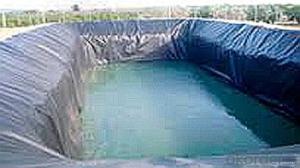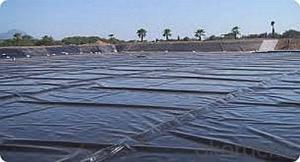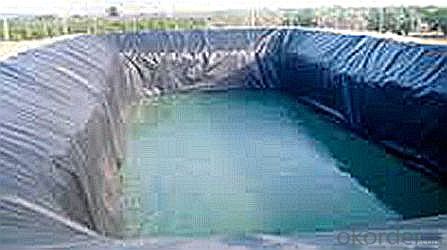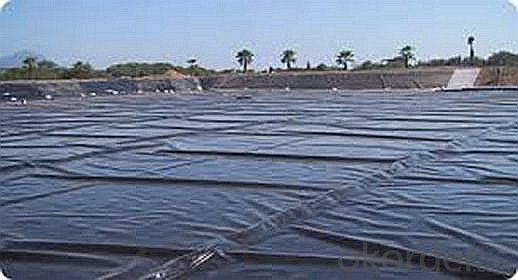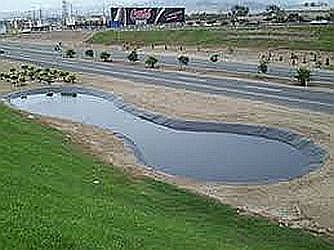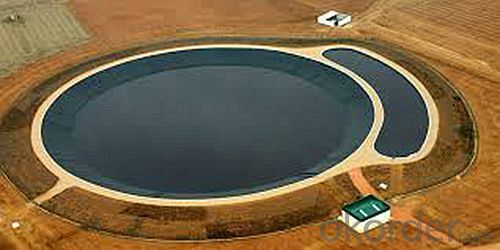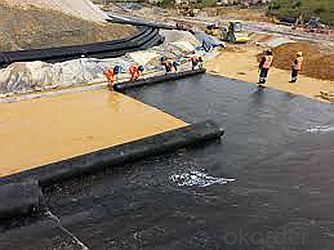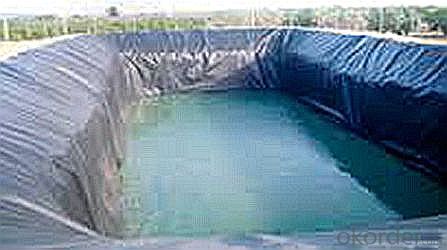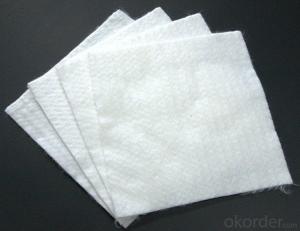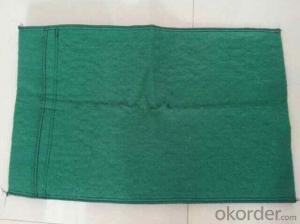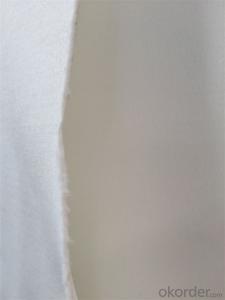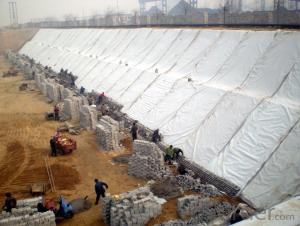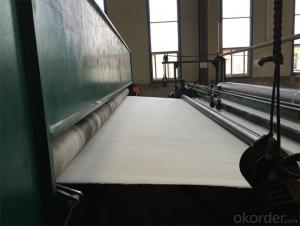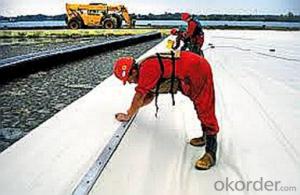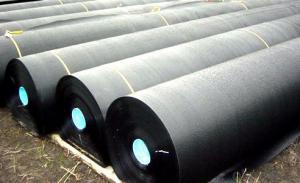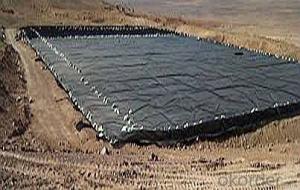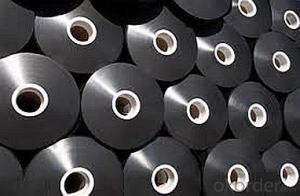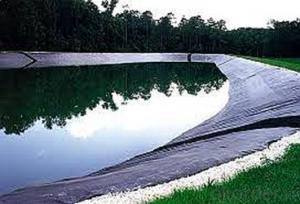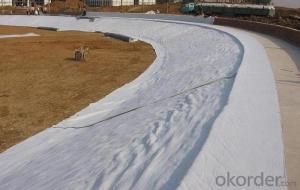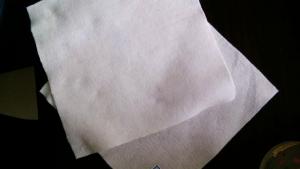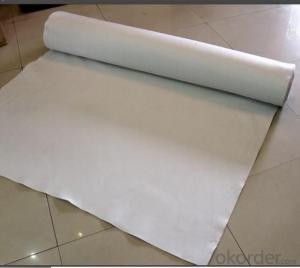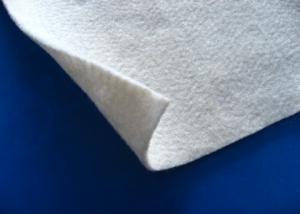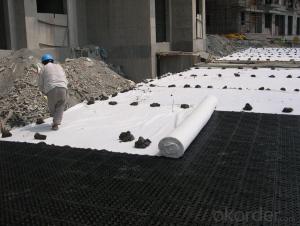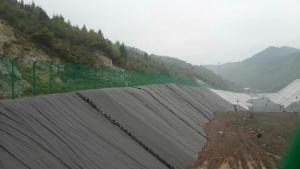Mirafi 160n Geotextile Fabric Reinforced High-Density Polyethylene Geomembrane for Waste Liquids
- Loading Port:
- China main port
- Payment Terms:
- TT OR LC
- Min Order Qty:
- 1000 m²
- Supply Capability:
- 1000000 m²/month
OKorder Service Pledge
OKorder Financial Service
You Might Also Like
Specification
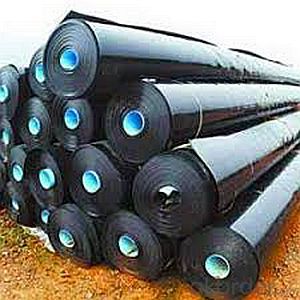
Product Application Range
1) Domestic and Hazardous Waste landfills
2) Landfill closures
3) Heap leach mining and tailing dams
4) Biogas Management
5) Floating Covers
6) Waste water treatment reservoirs
7) Water conveyance channels and reservoirs
8) Temporary tanks
9) Industrial sludge storage and drying ponds
10) Secondary containment
11) Architectural ponds and lakes
12) Brine evaporation ponds
13) Aquaculture ponds
14) Food and water grade reservoirs and tanks
Packaging & Shipping
Packing: PLASTIC FILM INSIDE, AND WOVEN BAG OUTSIDE
Shipping: About 15 days after receipt the deposit
geotextile fabric
permeability,filtration,easy for construction
ISO and CE certificate
Good quality and competitive price
Our Service
Quality assurance
1.On a regular basis or as per your request,we entrust national testing agencies to conduct quality inspections
2. Strictly in accordance with the ISO9001-2008 international quality system standard,we monitor and manage the whole process throughout production,quality testing,and measurement to ensure product quality
3. For quality-related construction delay or substandard construction(except for damage or losses due to customer’s responsibility or irresistible natural disasters),we have refunding,replacement,and repair services.We will respond to customers’ feedbacks on quality issues within 24 hours.
FAQ:
Q: What kind of payments does jenor support?
A: T/T, L/C, Cash are accepted.
Q: Do you charge for the samples?
A: Accordeing to our company policy, the samples are free, we only charge the freight fee. And we will return the freight fee during the next order.
Q: Can you produce according to customers' design?
A: Sure, we are professional manufacturer, OEM and ODM are both welcome.
Q: Do you have other products?
A: Yes, please check the pictures:
- Q: How do geotextiles help with soil confinement in erosion control bags?
- Geotextiles help with soil confinement in erosion control bags by providing a strong and permeable barrier that prevents soil particles from escaping. They act as a stabilizing agent, keeping the soil intact within the bags while still allowing water to flow through, reducing erosion and promoting vegetation growth.
- Q: Geotextile geotextile geotextile construction geotextile specific application
- Nonwovens is a major category of textiles, geotechnical construction is its use on the one hand, in this field people call it geotextile. Many types of non-woven fabrics, the specific technical indicators to be determined according to the actual species. Generally measure its raw materials, weight, moisture permeability, tear strength, bursting strong, etc., insulation, moisturizing. Scope: ⒈ water conservancy project dam and slope protection of the filter, channel isolation, anti-seepage. ⒉ road, railway, airport runway foundation isolation, filter, drainage, soil slope, retaining wall and road reinforcement, drainage. ⒊ port engineering soft foundation treatment, beach embankment, harbor wharf and breakwater reinforcement, drainage. ⒋ landfill, thermal power plant ash dam, mine tailings dam isolation, seepage control. ⒌ polyester long fiber anti-sticking acupuncture geotextile has been applied throughout the field of infrastructure construction, and gradually applied to a wider range of areas.
- Q: How do geotextiles assist in slope stabilization?
- Geotextiles assist in slope stabilization by providing reinforcement and erosion control. They are placed on slopes to prevent soil erosion caused by water flow, thereby improving the overall stability of the slope. The geotextiles act as a barrier, preventing soil particles from being washed away while still allowing water to drain through. Additionally, they provide strength and reinforcement to the soil, reducing the risk of slope failure and landslides.
- Q: Can geotextiles be used in geosynthetic clay liner applications?
- Yes, geotextiles can be used in geosynthetic clay liner applications. Geotextiles are often used as a protective barrier on both sides of the geosynthetic clay liner to enhance its performance and prevent punctures or damage. They help in retaining fine particles within the liner while allowing water to pass through, making them an essential component in geosynthetic clay liner applications.
- Q: What are the different geotextile erosion control products available in the market?
- There are several geotextile erosion control products available in the market, including geotextile mats, geotextile tubes, geotextile blankets, and geotextile grids. These products are designed to prevent soil erosion by providing stability, filtration, and reinforcement to the soil. Geotextile mats are typically used for slope stabilization, while geotextile tubes are commonly used for shoreline protection and dewatering applications. Geotextile blankets are used for erosion control on steep slopes and channels, and geotextile grids are often used for soil stabilization in areas with heavy traffic or high loads.
- Q: How are geotextiles used in landfills?
- Geotextiles are used in landfills as a protective barrier or liner, preventing the contamination of soil and groundwater by acting as a barrier between the waste and the underlying natural environment. They help to control the flow of liquids, filter out pollutants, and provide stability to the landfill structure, ultimately enhancing environmental protection and the longevity of the landfill.
- Q: Geotextile detection frequency
- GB / T-2009 / ISO9862: 2005 does not specify the frequency, but according to the general provisions of the construction material is required to declare the material inspection, the specific number of consultation with the testing agency, the general geotextile detection: thickness (sample length 1m, (Sample length 1m, the number of samples 10 10 × 10), tensile properties (wide stretch, trapezoidal tear (sample length 2m, the number of samples vertical and horizontal to the five blocks ))
- Q: Geotextile with glue can stick cement wall
- There is a special geomembrane ks glue, I am specializing in the production of geotechnical materials
- Q: What are the challenges associated with the installation of geotextiles?
- Some challenges associated with the installation of geotextiles include ensuring proper alignment and placement of the fabric, securing it to the ground to prevent shifting or movement, and properly overlapping and connecting multiple pieces of geotextile to create a continuous barrier. Other challenges may include dealing with uneven or unstable soil conditions, working in difficult terrain or access areas, and ensuring the geotextile does not get damaged during the installation process. Additionally, the selection and installation of appropriate anchoring methods and the need for specialized equipment or expertise can also pose challenges.
- Q: Waterproof geotextile market demand prospects?
- Supply geotextile, geomembrane, composite geomembrane and other geotechnical materials. Market prospects are excellent. Geotechnical material manufacturers to answer your questions
Send your message to us
Mirafi 160n Geotextile Fabric Reinforced High-Density Polyethylene Geomembrane for Waste Liquids
- Loading Port:
- China main port
- Payment Terms:
- TT OR LC
- Min Order Qty:
- 1000 m²
- Supply Capability:
- 1000000 m²/month
OKorder Service Pledge
OKorder Financial Service
Similar products
Hot products
Hot Searches
Related keywords
